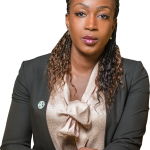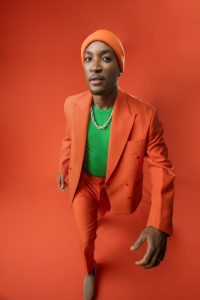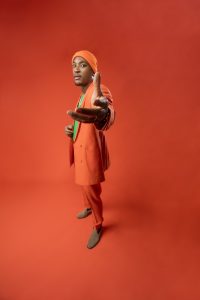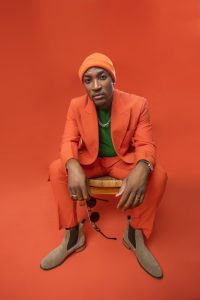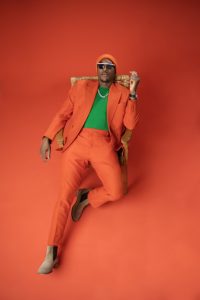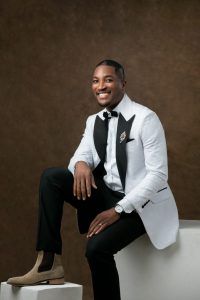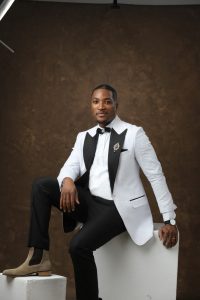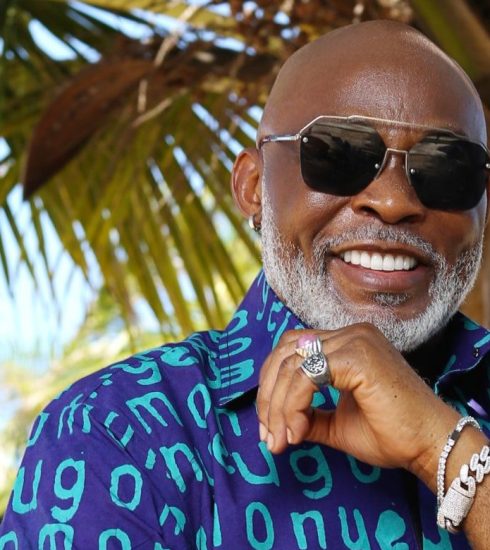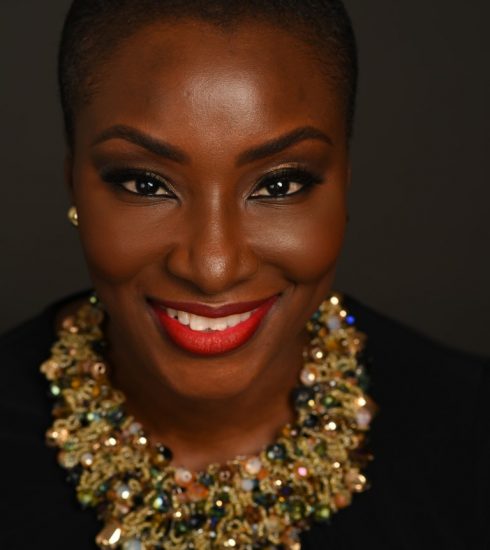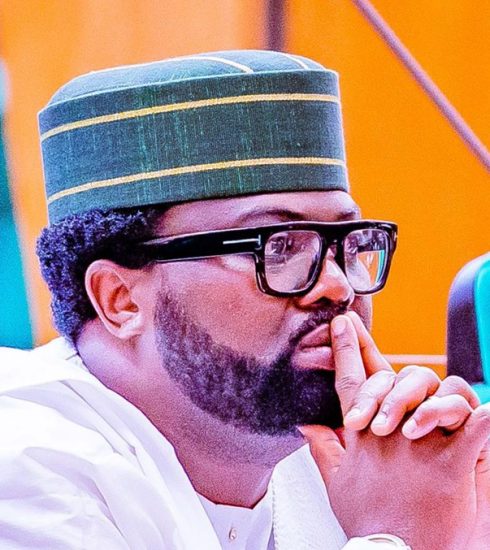Man Of God, Akah Nnani Is The Chosen One
Whether fiction or true-life stories, films are known to give a vivid reflection of society. The ability to take elements from real-life experiences and translate them on-screen has helped us in documenting human existence. The Nollywood industry, for example, is renowned for telling stories that resonate deeply with the Nigerian people. Recently, we got a new installation of one of those stories, and it got people talking.
When Man of God debuted on Netflix, it was nothing like we had ever seen before. If you are a behind-the-scenes critic, you’d most likely have a lot to say about the production angle. However, for thespians, it is the fascinating storyline, and impeccable acting spearheaded by a man who is vastly becoming Nollywood’s sweetheart, Akah Nnani.
Akah’s story is quite fascinating. He had to wait seven years to land his first lead role in a feature film and what better way to come. Man of God debuted at number one on Netflix and still occupies the position at the time of press. We had to meet the man. Akah Nnani, as portrayed in the movie, started from the church as well. Born in a religious household, the ministry was a solid foundation of his career. Speaking to DOWNTOWN Editor, Onah Nwachukwu, and writer, Kehinde Fagbule, he shared some insights into his early beginnings. “Some of my craziest moments in life have been in secondary school, Faith Academy, and then moving on to Covenant University- my parents are Winners members. They are not in the country, but they are Winners in the US. Because they believe in the ministry, they decided to send their children to school there. I was in the choir from secondary school through University, so people expected me to be a music artist when I graduated. Everybody thought I was going to be the next D’banj because I had the charisma,” he said.
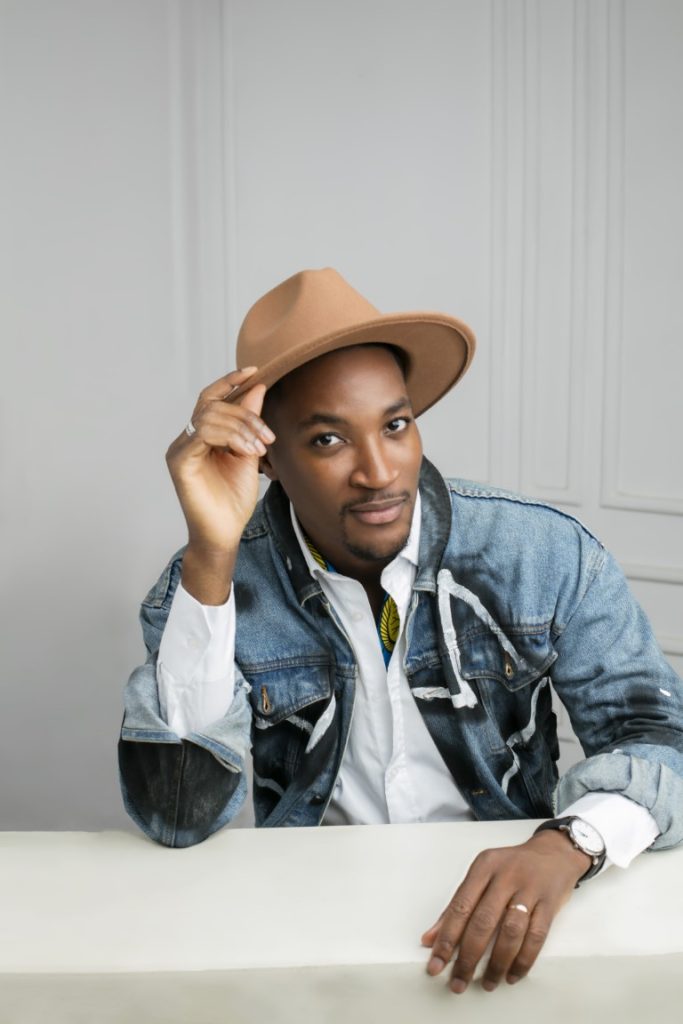
Akah Nnani
This was evident in the movie. The early scenes of the movie shows his character performing parodied renditions of Afrobeat’s pioneer, Fela Anikulapo-Kuti. And although he appeared to do an amazing job of that, given the extremely limited time he had to prepare, Akah admitted to occasionally falling short and quickly filling the gaps with improvisations of legendary musician D’banj, an “alter ego” he had grown up with. “When I tried to pull off Fela, I decided that if there were any moments in the characterisation that I get to a place where I wouldn’t feel sure about the choice that I was about to make, I would switch to D’banj because I had 24 hours to prepare for Fela or to embody that character. And I have never been a “fan” of Fela prior. I love his ideology and what he stood for, but I have never really listened to his music or consumed him as much. I thought that I would start with the film, and then two weeks into the film when I’m already embodying the character, I would then have the chance to have had enough time to enter into Fela. But the first day on set, I was told we were doing the Fela scenes. Bolanle Austen-Peters (BAP) had just sent me the songs that we may be performing at midnight. I started asking myself ‘how am I going to pull this off?’ I was so scared. So at that moment, I knew that the best thing for me to do was put Fela here and try and see if I can build into his mannerism. But who else can I place side by side that is easier to get if I fall short in my choices? That was D’banj. And that’s why you would see a little bit of D’banj. It was really tough but after the day’s job, Bolanle Austen-Peters was so impressed, she said “the guy who did Fela for my theater show had six months to get into character, you only had one day.” But I prayed a lot that day. I remember when I was on stage with the dancers smoking, the director yelled “Cut!” And I literally started speaking in tongues. One of the dancers was so shocked she said ‘what’s happening? Who is this guy?’ I knew I couldn’t mess it up because it wouldn’t take a second for BAP to replace me, so I had to bring my A-game and I couldn’t have pulled it off without God.”
The fantastic actor that we all know today wasn’t always an actor, you see. Growing up, Akah always had a thing for music, so much so that he inspired a few musicians who have gone on to make a name for themselves in the music industry. But why did he quit music before he even started? He explains, “I am an extrovert, so from school, I had already been in the choir. I was quite the performer, but I was not really good with lyrics. So even with Christian songs that I sang on stage, I would forget the lyrics and immediately replace them with something else and everyone would still jam it. I was just performing. I was very into music but immediately I left school, I just didn’t want to do it anymore and didn’t want to be in the church, even though my mum took much pride in me singing in the choir. So when I got to my NYSC I said to myself ‘this is my life, I’m going to do it my way.’ That was where I found a little bit of similarity with the character camaraderie because I know what it is to rebel, and I think every youth or child knows what it is to rebel because we all go through phases where we tell ourselves, ‘I want to do me and I’m tired of the rules.’
I also didn’t go into the entertainment space as people would have expected me to. But I think the major reason was that I didn’t believe in myself and I didn’t think I was good enough.
Every time I sang, everybody at that point felt like Akah was the best singer in school except me. I taught Ayoola Ayolola (MTN Project Fame winner and The Men’s Club actor) how to do riffs and runs back then. Nonso Bassey (of The Voice) in school really looked up to me. All of these people had confidence in me except me who was seen as the number one singer. Because every time I sang, I would ask ‘how was it? Did I do well?’ I was heavy on the feedback. I listened to a lot of R. Kelly, Joe, and Fred Hammond and was measuring myself by their standard, so when I left school, I concluded that I couldn’t do it because I wasn’t as good as them.”
Akah’s journey was heavily plagued and delayed by bouts of self-doubts. Revered by everyone as the best to ever do it, he never quite blossomed simply because he didn’t believe he was good enough. And so he took the easier route and ended up behind an office desk. He talks about that mundane phase of his life and how he was able to eventually break free and return to his original calling. “So I got into a white-collar job, in telecommunications. A lot of my friends would come to see me at the office and say, ‘you are not meant to be here, what are you doing?’ And then my colleagues started saying it too, ‘you’re bigger than this place, you’re not meant to be in this office.’ Whenever D’banj came on the TV, my colleagues would say ‘Akah, that’s where you’re meant to be’. I remember my friend Onyinye Anyeagbu (née Silas) called me from London where she was studying for her Masters. I was in the office and she was like, ‘Akah, you’re still in that office.’ Then, she gave the phone to her roommate and her roommate said ‘she had told me so much about you and I just want to say with everything I have heard, you’re not meant to be locked up in an office space. I don’t know why you are there but you need to just go out and chase your dreams and be where you are meant to be.’ Three months down the line, I sent in my resignation letter. So how I came to that decision was not because I got to a place where I felt confident, but I told myself that if everybody is saying the same thing, then I must be the only mad person. So I had to take a chance—I was jobless for like six months. One day I called a friend randomly, Ajifa (Ayjay) and he said to me ‘hey Akah, my office is having an audition tomorrow, you should come.’ They were looking for a co-host. I went in for that, got the job in February 2014, and that was the beginning of my journey into the entertainment industry. In 2015, I started acting. I thank God for the experience of hosting a TV show because it then helped me with confidence. My producer was very handson, she didn’t “like” me at first. In fact, they gave the job to someone else, which was very deserving, I knew he was going to get it. At the audition, they wanted it verbatim, and even though I knew my lines before I went in, I was so scared, and nervous when I got in, that I had to recite my script like four times before I could get it. But a month later, I got called back. They said the guy had a bad attitude and he had to be replaced. The producer said she saw me at the audition and I was a raw talent. Chichi Okohalum (the producer), took me as raw as I was and began to mould me. That was where it started from, I was live on TVC Entertainment Splash, a lunchtime show. It was live, not prerecorded. She pushed me a lot, and also gave me tips on how to talk before I could think. You see, I’m used to thinking before I talk whereas for TV, and good OAPs, you have to talk before it even makes sense, your mouth has to be faster than your mind. She did a good job on me and that gave me the confidence to go into my first audition for an acting role. I got that gig the first time and that was it.”
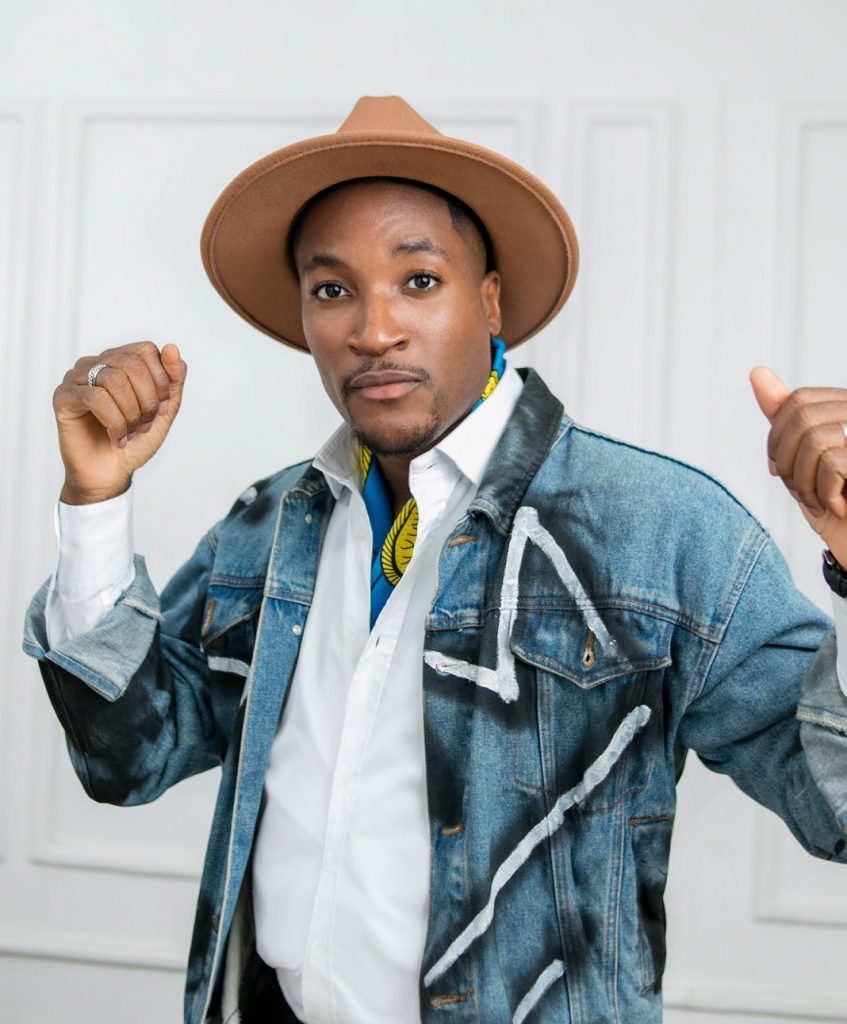
Akah Nnani
Akah’s debut was in an MNET Africa TV show in 2015, again before the audition, the actor had doubts but his friend, one time DOWNTOWN cover personality, and renowned Pan-African artist, Ric Hassani, gave him the encouragement he needed. And so looking through his filmography and finding that his first-ever scene as an actor is not a Nigerian project sort of raises envious eyebrows. Is he Pan-African? He told us how that came to be. “I think at the time I just wanted to have the opportunity to act. I wasn’t even aware of the Pan-Africanism of it all. I just felt that this was the first audition I heard of and I was going to try. Ric Hassani was with me at the time and when I had doubts about even going for the audition, he was the one who convinced me strongly. He said, ‘if dem no choose you, who dem go choose?’ I just wanted a chance to act and do what I wanted to do. It was Africa Magic’s original film, so it was shown everywhere else across the continent.”
Before he got on TV as a show presenter, during the transitioning period from the corporate industry to media, Akah decided to start his own YouTube channel. Now one of the biggest YouTubers in the country, he tells us about his experience gradually curating followership and digital presence that would help him be spotted by big names in the film industry. “My YouTube experience has been amazing. I cherish my YouTube audience and the following that I have there because it’s just like people leaving everything else to come to listen to you on some platform. I feel like they understand me, care about what I have to say and what I think about certain things and I don’t take that trust for granted because I’m very careful with what I say on there and I make sure that I’m using it for the good of humanity. I started my YouTube channel because when I was at TVC, I couldn’t say the things that I wanted to say since it was censored and owned by a particular politician. But there were a couple of things that I felt like I needed to share, so I started Akah Bants, talking about politics, and when I began to get traction, I started talking about news and pop culture. The Daily Show with Trevor Noah impacted how I began to tell the news. I then went back to the drawing board and back into giving political news but in gist style. That quickly became a passion project for me. It took a lot of my time, energy, and editing, in particular, drained me. Until I started to invest in it, getting an editor and delegating tasks. Then suddenly, YouTube recognized me as the recipient of 2021’s YouTube Black Voices. That for me was amazing.”
Having a channel for himself wasn’t enough. Akah, on getting married to the love of his life Claire Idera Nnani, started a YouTube channel called Akah and Claire to document their love story and journey through marriage. When asked if it was difficult convincing her to adopt a lifestyle as a vlogger, he replied, “It wasn’t. It was actually quite easy, I think because she already saw the need for it. I had prayed about it because she didn’t really like to be in front of the camera but I encouraged her. Luckily, she was consuming a lot of couples content, so she liked it and wasn’t against the idea.”
Although very refreshing and intuitive, theirs wouldn’t be the first couple-channel on YouTube. When asked why they decided to document their journey for the world to see, the chief instigator replied, “At the time I was getting married, we kept hearing ‘there’s no love anymore’ from a lot of our friends, which couldn’t be farther from the truth because we found love. But people are constantly seeing the opposite, and people are getting let down on social media because of what they are exposed to. Also, the examples young girls are seeing is if you’re not in a private jet or buying your partner Gucci bags, it’s not love. Relationships have become transactional. So I felt the strong “calling” [he says as he signals a quote] to show the opportunity that true love exists, and also there are people (a young man and woman) who can grow together, not have everything but be in love and show progression and contentment. That’s what it was about, I just wanted to show the alternative, so people can see and hope for something different. And I think that’s what we’ve been able to do.”
But it hasn’t been all smooth-sailing. Because of the openness of their relationship to the world, they have been on the receiving end of criticisms online, particularly on Twitter. “Oh! Twitter. I’m a very opinionated person, and I’m just one of those people that feel like we are getting to a society where everybody feels like you have to be linear in your thought process,” he said.
In an episode, Akah was seen discussing breastfeeding with his wife. What had been made to look like a confrontation, and so garnered a lot of backlashes online, was in fact one of those regular hard-hitting conversations that usually happens in marriages. It wouldn’t stop people from talking though, with some going as far as cancelling him for his antics in that episode. When asked if it was a tough time for him and his wife, he responded, “It wasn’t really tough. My wife and I dealt with it. She hugged me, we prayed and she was like ‘okay switch off everything, and let’s watch a TV show.’ I remember waking up to several missed calls, from Bolanle Olukanni, Bovi, and so on, all of them concerned, asking if I was okay. I expected it. After two backlashes on Twitter, I knew what was going to happen because I was the one who put out that video; my wife didn’t even see it before I put it out.”
In today’s world that is increasingly looking like people are constantly looking for something to be outraged about, fewer questions are asked and more judgements are passed. So we decided to ask to hear from the horse’s mouth what exactly had transpired. His narration of the incident clearly showed a young husband, trying to understand his wife’s reaction during a previous conversation. “So what had happened was before that time, growing up, the only experience I had of breastfeeding was seeing women breastfeed their babies. I never saw anyone wincing with pain. The only time I saw pain what I heard was ‘this baby is biting me,’ because babies began to grow teeth. I care about my wife a lot and we had talked about what we wanted for the child which is to breastfeed for a year—we both came to that conclusion together. Now I know that between six to eight months, the baby is going to be growing teeth, and from what I know, women cry when babies bite. So to prepare for that, I bought everything my wife needed even before the baby came. I shopped myself, got a pregnancy list from about five of my friends who had given birth, went through the list with my wife, and bought everything we needed, including the breast pump. And so we agreed for her to start pumping as early as possible before the baby began growing teeth. Unbeknownst to me, I didn’t know that breastfeeding was a problem because she was going through pain and it was draining. So the day before that video, I asked her in the bathroom, ‘how can we make sure that we make more milk and store it for the baby?’ and she wasn’t having it, so we didn’t go further. The next day, I was sitting down in the house and I asked her why she was harsh when I brought up the conversation the day before. You see, we had already had an agreement. It was in the middle of explaining why she responded the way she did the previous day, that my friend who was there started a video recording of the conversation. She was doing most of the explaining and I was trying to understand. So many things were new to me as I was hearing them. It was after that, that my friend showed me the video and we concluded that men need to know what’s happening. They need to understand.”
Opinions are important; they form criticisms that help shape us to be better versions of ourselves. However, when they are not properly conveyed, they can quickly cause a lot of friction between us. Akah explains the Twitter ordeal. “What happened on Twitter? I explained everything on Instagram. Instagram was very understanding. Somebody just took a small clip and posted it on Twitter with no context, none of my captions and then boom, everybody started fighting. But Twitter is just a ‘woke’ society, a mob; if you don’t think what the popular opinion is saying, then you are wrong and an enemy. That was what happened and I’m very opinionated. And to be honest, I can drag,” he said with a smug.
In December 2020, Akah and his wife, Claire, welcomed their daughter. Having to parent a child today is not an easy task as we have seen with the barrage of ill-behaved children stories as a result of faulty parenting. Reflecting on the movie, Man of God, a significant theme of it is parenting, so we asked Akah what conversations he has with his wife amid the chaotic overflow of parenting opinions on social media today and he happily shared an insight, “I think the most important conversation we always have is making choices for her, but we also had to have the conversation about changing our lifestyle because children don’t do what you tell them to do, they do what they see you do. So we had to change some of the things that we were used to; how we eat, what we eat, what we do. We cut down on TV time in our home, we maybe watch two hours of TV every week. I made the decision to read more mid-last year because I realised that I was constantly on my phone or laptop, and my child will see me and want a phone of her own too. So I started reading because I want her to be a bookworm, I bought books for her. I have a library. I told my wife ‘babes, you have to reduce your screen time whenever you’re around Gabby,’ so those are the kinds of talks we have. We have to model. I also see her (our daughter) for who she is; she’s very strong-willed and I love it.”
Oftentimes, actors draw from their personal experiences to be able to interpret certain roles. Curious to know if parts of Akah’s life was portrayed in the film, we asked the man himself if there were any similarities between his life and that of the character he played. “I think coming from a religious background, I related with him (the character Samuel) but not the physical abuse aspect. I remember when we were in school, Bishop Oyedepo told teachers, ‘that rod is not the cane, it is the word of God.’ However, I’m happy with my portrayal of this character, when I see Samuel, I don’t see myself, which is very rare.”
It turns out that self-doubt has been a recurring theme all through Akah’s impressive career. Akah, who garnered so much critical acclaim for his role in Funke Akindele’s Omo Ghetto (The Saga), revealed that he indeed wasn’t impressed by his performance in the film. He narrates how he watched it for the first time three months after it was released in the cinemas—as he was occupied with Daddy duties—and leaving unimpressed. He said, “As I mentioned before when I see my movies, I scrutinize them over and over again. With Omo Ghetto (The Saga) for instance, I only got to see it three months after it premiered because my baby was born on the day of the premiere. Oh my goodness, I left underwhelmed with my performance. I got so many DMs and calls telling me just how good I was, but I didn’t see what people saw, I could only see flaws upon flaws. And it’s a recurring theme with some other projects that I’ve been on.
But when I saw this film, Man of God, I was very impressed. And what’s a blessing is that I didn’t even have to call anyone to ask if they liked it or not. It is so good, I was watching it at the premiere seated beside my wife and I yelled ‘sh-t! I dey act mehn!’ he concluded, pointing to how captivated he was by his own performance. Finally! It’s been a long time coming.
If you’ve seen Man of God, you’d reckon that there are several takeaways from it—some more emphasized than others. When we asked the lead actor, central to all of the life lessons that the film has to teach, what his personal takeaways are, his passionate response was, “There’s a way that seems right to a man but the end of it is destruction.” Everybody is talking about Reks, Teju, Joy, and the love stories, but nobody has picked up on that. That’s what I want people to take away from it. Whether it’s the pastor who’s not doing right, the drug guys, the yahoo boys, the people who are abusive to their children or forcing a lifestyle on their kids, the kids who aren’t listening and rebelling: “There is a way that seemeth right to a man but the end of it is destruction.” he buttressed. Another facet of society that the movie touches on is the immunity that pastors have, which makes them get away with whatever wrongdoings they are involved in. In 2019, Akah was very vocal in his cry for justice and due process when the story of the lead pastor of Commonwealth of Zion Assembly (popularly known as COZA) Pastor Fatoyinbo’s sexual assault allegations broke on the internet. Some scenes in the film mirror that ordeal, and so we asked if it was intentional. He replied, “It was a coincidence because this role was selected for me before I was born. Bolanle Austen-Peters didn’t even know that (my activism on Fatoyinbo’s story). I don’t think it was about any particular pastor because he’s not the only one. Three years ago when the story broke, for me, it wasn’t about him, it was about the rape culture, the way the church was responding, and the way people responded toward the victim and protected the alleged predator because we don’t know yet. So can we calm down? Can we behave right? Can you step down and let due process follow? That was what I was about. How do we make sure we install the right processes in dealing with issues like this especially when it comes to church? Because if we cannot hold the moral standards in church, then we cannot hold them in politics. You cannot hold your pastors accountable; and who are they? They are the pillars of morality in society whether we like it or not. So, for me, I wanted to set an example and also educate people on how to deal with issues like this. Don’t protect the supposed predator. Ask for accountability, ask for him to be open with the investigation, and when it’s clear that it wasn’t the case, get back up. But don’t be in the seat of power that can help you influence the outcome of the investigation. But anyway, for me, this story is not about any particular pastor. And if it shows whatever any pastor is doing, then ooops!
Some pastors sponsored that film. As a matter of fact, we filmed the church scenes in a church. My pastors were in full support of this film, they were there for me, and prayed for me. The cross I wore for the premiere was a gift from a pastor. He brought it himself and put it on me.”
All work and no play makes Jack a dull boy. When asked what he does for leisure, he said, “I watch cartoons or read a book. I love spending time with my family, I find it very therapeutic. I enjoy spending time with my wife and making her feel good because her love language is a quality time which is coincidentally the farthest love language for me. My love language is ‘acts of service’. And it’s not only just spending time with my wife but also being there for my daughter. I give her baths, change her diapers, feed her, and make her food. Three weeks after her birth, I was already giving her baths. So those things make me feel fulfilled, centered, and at home, they help me feel relaxed.”
Akah Nnani has no doubt been misunderstood on the internet a few times in recent years. So we thought it was a good idea to end the chat by providing an insight into who he really is. When asked to describe himself in three words that are not ‘Man’, ‘of’, and ‘God’, he said, “Disruptor. Giver. Chosen.”
He explains, “I’ve always found that I like to disrupt; systems, school of thought, religion, pop culture, politics, I’m a disruptor with anything. Giver because I give a lot. Time, attention, money, space, self, because we are called to actually serve in whatever capacity; as a husband, a father, a son, a brother, a friend, a citizen of the country, even as a believer, I serve because that’s what I’m called to do.
Chosen because I was chosen to do this. And that means I’m blessed, but people don’t understand that being blessed doesn’t necessarily mean that everything is “soft”. If you’re doing what God says you should do, you are highly favoured. I am the chosen one.”
Self-identifies as a middle child between millennials and the gen Z, began writing as a 14 year-old. Born and raised in Lagos where he would go on to obtain a degree in the University of Lagos, he mainly draws inspiration from societal issues and the ills within. His "live and let live" mantra shapes his thought process as he writes about lifestyle from a place of empathy and emotional intelligence. When he is not writing, he is very invested in football and sociopolitical commentary on social media.



